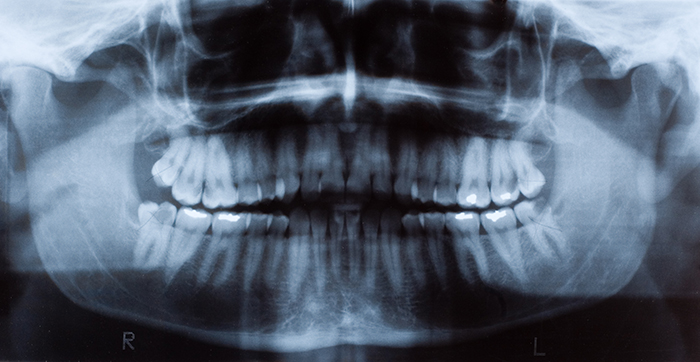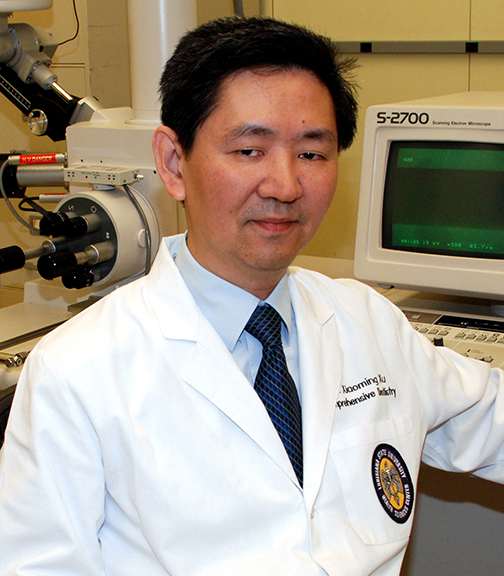
The National Institute of Dental and Craniofacial Research of the National Institutes of Health has awarded LSU Health New Orleans' School of Dentistry an R01 grant in the amount of $2,465,297 over five years to develop stronger, longer-lasting dental filling materials with antibacterial properties to inhibit recurrent cavities and extend the life of the restoration. Xiaoming Xu, PhD, Professor and Head of the Division of Biomaterials, is the principal investigator on the grant.
Tooth decay is the most prevalent chronic oral disease. The treatment for cavities, known medically as caries, is to remove the decayed tooth tissues and restore teeth with filling materials such as dental composites. Currently, composite restorations have a limited service life -- about five to seven years -- and their replacement accounts for 60% of dental operations.
"The leading cause for the failure of composite restorations is the development of secondary caries caused by bacterial biofilms at the restoration margin," notes Dr. Xu, who is also Director of Biomaterials Research at LSU Health New Orleans School of Dentistry."Another cause is bulk fractures due to the weakness of the material."
A bacterial biofilm is a slimy layer or film containing colonies of bacteria and the sticky, substance they excrete, which allows them to attach to a surface. Biofilms are more resistant than ordinary bacteria because they contain different kinds of bacteria that stick together, and the substance they excrete also forms a protective barrier around them. The biofilms on teeth are known as dental plaque. Dental plaque uses the food and drinks people consume to produce acids that break down tooth enamel leading to decay.

Although much effort has been directed towards the development of dental materials that can inhibit bacterial biofilms and reduce secondary cavities, most have had either poor mechanical properties or an unacceptable, dark shade, such as silver-containing materials.
Dr. Xu's group has been developing a series of novel antibacterial fluoride-releasing materials (dental composites, bonding agents and sealants) that have shown enhanced fluoride-releasing and recharge capabilities, promising antibacterial effect, and good mechanical properties or bonding strength. This new grant will support further development of these promising materials. The researchers will test a combination of new technologies that will release antibacterial agents in response to the presence of acids. These materials may also be used in sealants, crowns and cement, as well as other dental applications.
"Our long-term goal is to develop a new generation of dental materials that have a high efficacy to inhibit oral biofilm formation as well as excellent physical and mechanical properties," says Xu. "We expect that the novel dental materials developed in this project will have significantly longer service life and will be excellent candidates for future clinical trials."
LSU Health New Orleans Co-investigators include Dr. Zezhang Wen, Dr. Thomas Lallier at the School of Dentistry and Dr. Qingzhao Yu at the School of Public Health, along with Dr. Hyun Koo at the University of Pennsylvania.
LSU Health New Orleans School of Dentistry is the only dental school in the State of Louisiana. Three out of every four dentists and dental hygienists practicing in Louisiana today are graduates of the school. From a national perspective, LSU Health New Orleans School of Dentistry is unique among the more than 65 dental schools in the United States because it offers degrees in dentistry, dental hygiene and dental laboratory technology. By training students in all aspects of dentistry, the School offers a level of training that has resulted in a reputation for outstanding clinical education.
